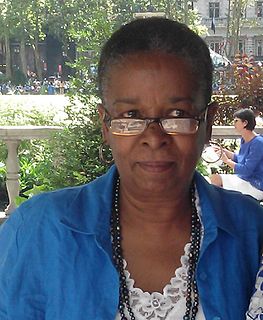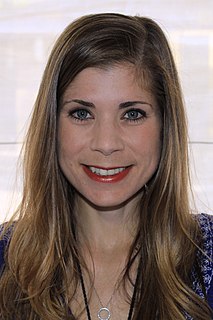A Quote by Beverly Jenkins
Because we can't tell others about our accomplishments if we don't know them ourselves.
Related Quotes
In our concern for others, we worry less about ourselves. When we worry less about ourselves an experience of our own suffering is less intense. What does this tell us? Firstly, because our every action has a universal dimension, a potential impact on others' happiness, ethics are necessary as a means to ensure that we do not harm others. Secondly, it tells us that genuine happiness consists in those spiritual qualities of love, compassion, patience, tolerance and forgiveness and so on. For it is these which provide both for our happiness and others' happiness.
If we don't love ourselves, we would not love others. When someone tell you to love others first, and to love others more than ourselves; it is impossible. If you can't love yourselves, you can't love anybody else. Therefore we must gather up our great power so that we know in what ways we are good, what special abilities we have, what wisdom, what kind of talent we have, and how big our love is. When we can recognize our virtues, we can learn how to love others.
It is difficult to see ourselves as we are. Sometimes we are fortunate enough to have good friends, lovers or others who will do us the good service of telling us the truth about ourselves. When we don't, we can so easily delude ourselves, lose a sense of truth about ourselves, and our conscience loses power and purpose. Mostly, we tell ourselves what we would like to hear. We lose our way.
The remarkable thing is that we really love our neighbor as ourselves: we do unto others as we do unto ourselves. We hate others when we hate ourselves. We are tolerant toward others when we tolerate ourselves. We forgive others when we forgive ourselves. We are prone to sacrifice others when we are ready to sacrifice ourselves.
All of us are prone to excuse our own mediocre performance. We blame our misfortunes, our disfigurements, our so-called handicaps. Victims of our own rationalization, we say silently to ourselves, 'I'm just too weak,' or 'I'm not cut out for better things.' Others soar beyond our meager accomplishments. Envy and discouragement take their toll. .
We wake up and go to sleep with ourselves every single day. We see ourselves in the mirror from every angle. We know what we look like. We know what makes us happy about our bodies and what upsets us. And we don't need to value the opinions of others at all - especially from people who that we don't even know, or that we don't care about.



































